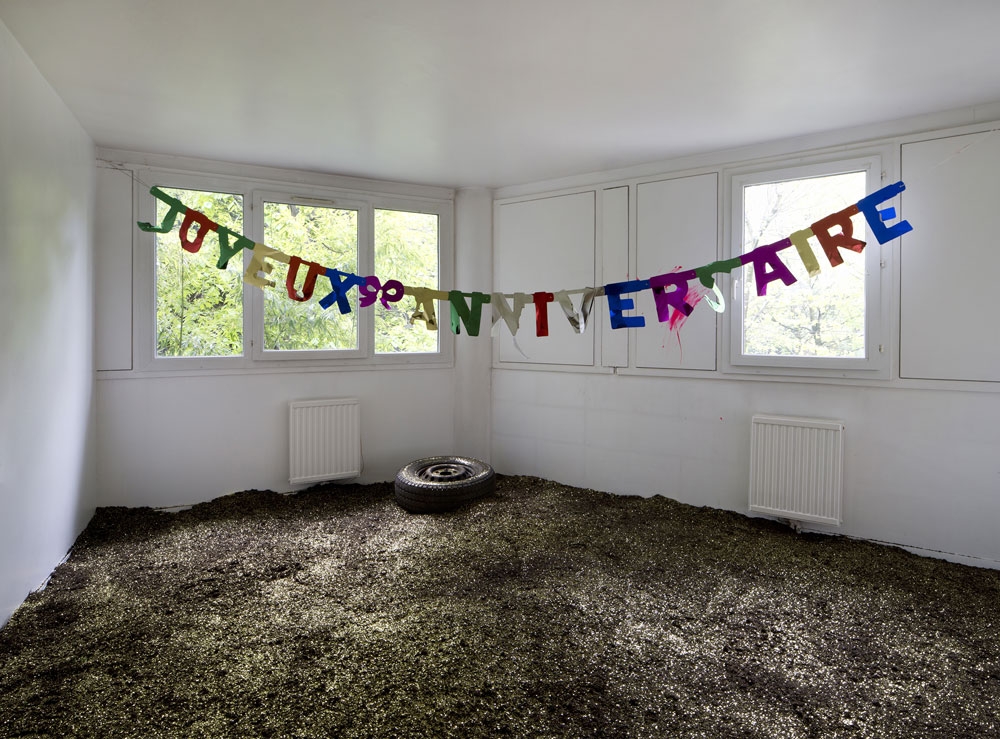EXOCENE
Series of four talks, EnsadLab Displays / ICCA Labex, Paris, Autumn-winter 2018
New contexts of experimentation for the contemporary art exhibitions
TALK #1, SMALL IS POWERFUL: CAPA AUBERVILLIERS / LA SALLE DE BAINS LYON
With Juliette Fontaine (artist, curator, author and head of CAPA – Centre d’Arts Plastiques d’Aubervilliers) and Julie Portier (critic and curator, co-artistic director of La Salle de bains, Lyon). This meeting is dedicated to the experiments carried out by two “small scale” places: CAPA – Centre d’Arts Plastiques d’Aubervilliers and La Salle de Bains in Lyon. The meeting will aim both to present the activities of the two places, questioning how their small scale allows them to develop specific experiments – and also how they can possibly constitute an obstacle.
Thursday, October 18, 2018, 6-8 pm
Ensad, 31 rue d’Ulm, 75005 Paris
In the wake of counter-cultures and the “do it yourself” movements, we observe in France a growing number of places and networks creating exogenous conditions toward the existing art exhibition structures. These initiatives are particularly part of a digital context linked to social networks and platforms such as third places. They draw an “era of the outside” (that we call here “exocene”) where the investment of new spaces leverages to invent new experimentation agencies.
Organized by EnsadLab Displays / ICCA Labex, these four Exocene panels thus welcome those in charge of places and facilities that create new conditions for experimentation in the field of exhibitions. Sometimes (but not systematically) created in precarious economies, they are characterized by innovative conditions of space and relationship to their territories. Thought as alternatives to institutional arrangements that have sometimes become less effective in their context, aiming to leverage the creation of new conditions and public art practices, do these frameworks renew the potential of the exhibitions they host? What is the specificity of the relationships they establish with their environments and the public? How to develop counterspaces while fighting for their necessary recognition?
Organised at the Ensad, this programme will consist of 4 talks, each time bringing together two guests in dialogue with the Displays group, each with a duration allowing an in-depth exchange with the guests and the public. Meetings will be held from October to December 2018.
Guests are chosen among actors whose work the Displays team knows, in order to sometimes continue exchanges already initiated, in a format allowing a real dialogue and deepening with the public – rather than successive conferences. Indeed, since these projects do not fall within the scope of the exhibition curating but define frameworks for action to host it afterwards, it is fundamental to be able to deploy open exchange to assess their conditions, their modalities of action and the issues they raise.
Organisation
Created in 2015 by Thierry Fournier and J. Emil Sennewald, the EnsadLab Displays research group is the first doctoral program in France dedicated to exhibition research and creation. It aims to question and experiment the contemporary forms of exhibition: the evolution of the objects on display (in the broad sense), the roles, spaces and temporalities of exhibitions and the critical positions toward the powers and cultural industries. Its activity includes two components: a “research through exhibition” approach, which deploys exhibition situations as moments of research on its issues; and public exchanges with actors in this field (conferences, meetings, publications). Each time, the latter deliberately adopt very specific protocols and scales, aiming to qualify the interaction modalities between its guests, in order to adapt them to the subjects addressed and to the working methods they relate.
The ICCA Laboratory of Excellence (Cultural Industries and Artistic Creation) is an interdisciplinary research laboratory focused on the practices and markets of culture, art and leisure. Created in 2011, ICCA’s main objectives are to define new economic and regulatory models, study new uses and emerging markets and transform legal frameworks, both in traditional sectors and in the digital world. ICCA brings together teams from several universities in different disciplines (sociology, economics, law, communication, educational sciences, design). ICCA is also a forum for dialogue with professional organizations and industrial actors in the cultural and arts sectors. ICCA is a research program funded by the “Future Investment” program.
*
Coordination Thierry Fournier & J. Emil Sennewald
Students-researchers Displays 2018-2019 : Bettina Blanc-Penther, Inés Moreno, Fanny Terno
Image: Claude Lévêque, Cérémonie, in situ installation in a flat, La Maladrerie, CAPA – Centre d’Arts Plastiques d’Aubervilliers, 2017. Photograph Julie Joubert.
